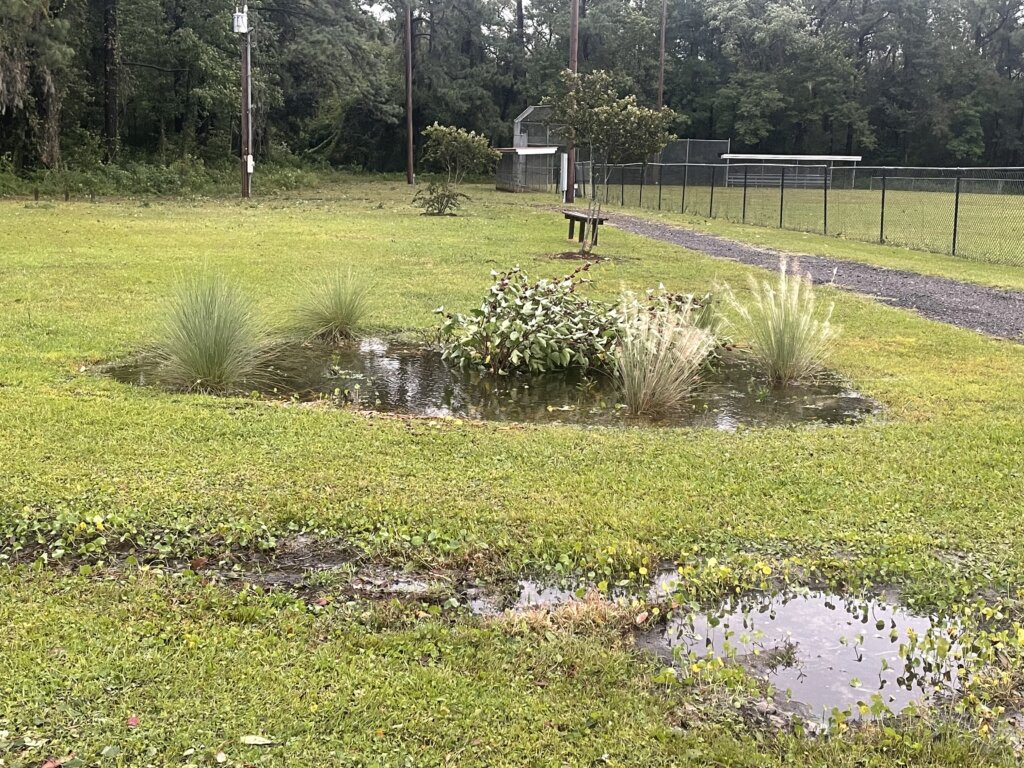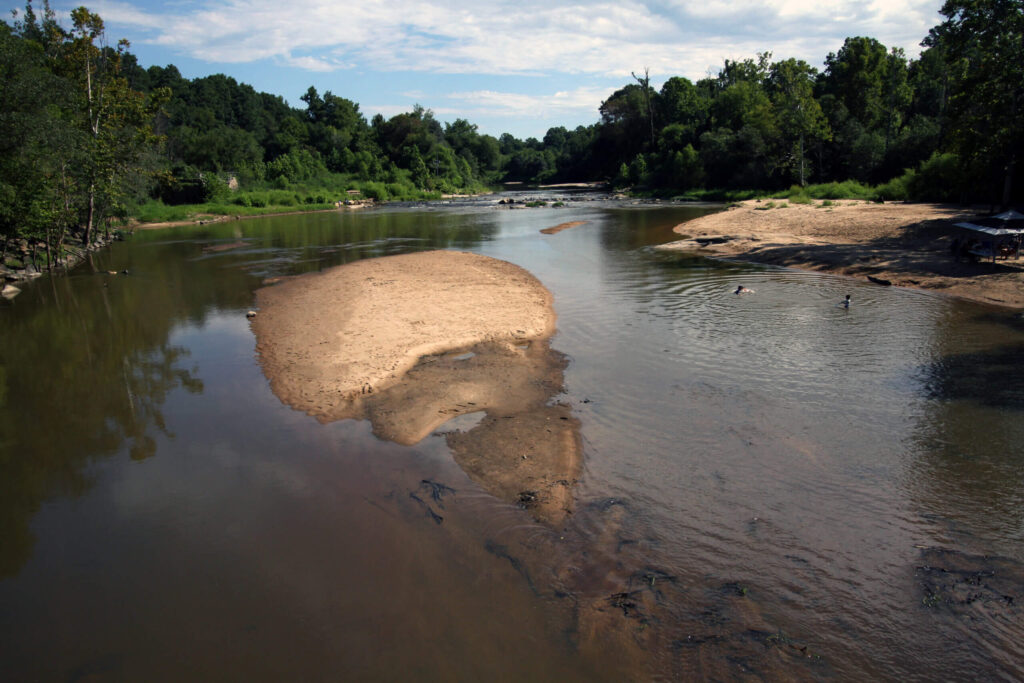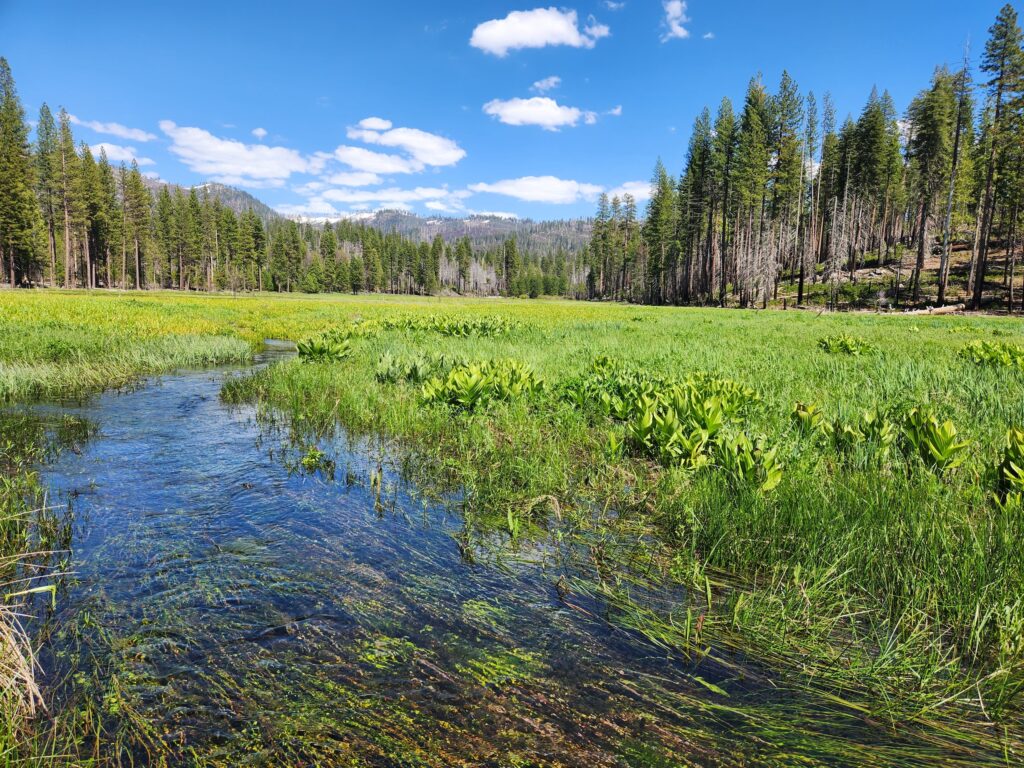Bucksport Community Finding Solutions to Flooding
This blogpost was cowritten by Cheryl Cail and Janae Davis
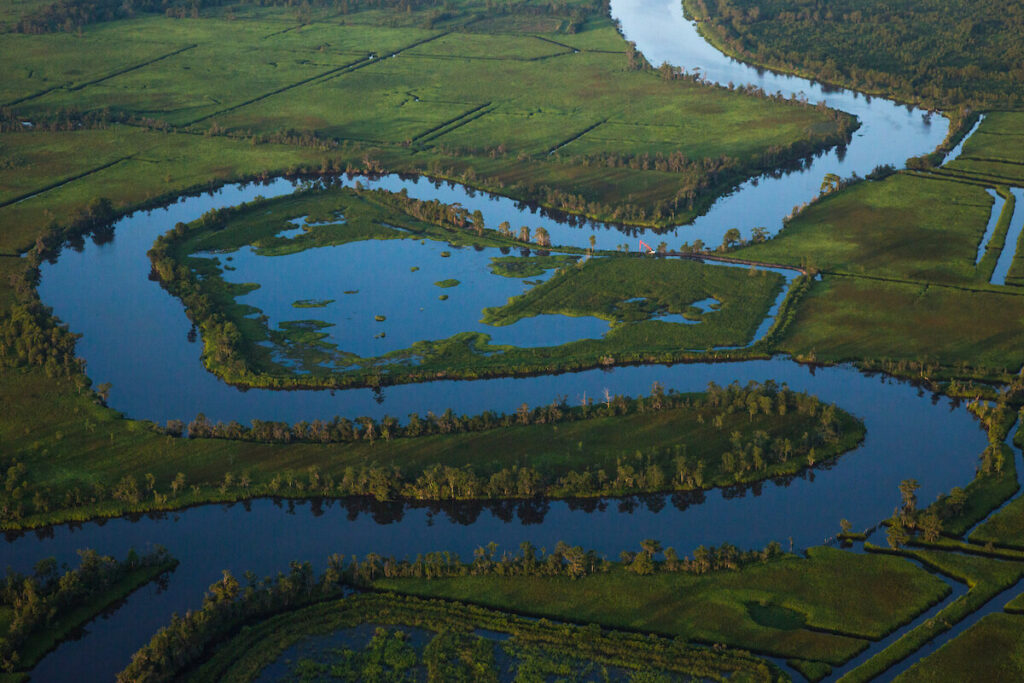
From Portland, Oregon to Bucksport, South Carolina, communities have been creatively addressing flooding issues by seeking nature-based solutions. For the Gullah Geechee community of Bucksport in South Carolina, rain gardens will empower the community to manage water on properties that are prone to flooding nuisance.
Bucksport is situated in the southern portion of Horry County, at the confluence of the Waccamaw and Pee Dee rivers, adjacent to the Waccamaw National Wildlife Refuge and just a short thirty-minute drive from the popular tourist destination of Myrtle Beach. The community has an extensive cultural history. In the 18th century, the area, identified as the “Great Bluff” on many topographical maps, was possibly the location of where trade was conducted with the Waccamaw and Pee Dee people at nearby Bull Creek. Burroughs, John Benjamin, “In Search of Uauenee (or the Great Bluff)” (2005). HCAC Research.1.
Bucksport’s recent history lends to an earlier colonial period of timber mills and trade along the river, with the production of the lumber that was used for building homes and businesses throughout Horry and Georgetown counties, as well as ships that were built and then launched from the thriving Bucksport Marina. These booming industries were buttressed by the labor of enslaved people – Indigenous, African and African Americans whose descendants continue to reside in Bucksport and throughout the region.
Today, the community of Bucksport is made up of families that have lived in the area for generations. For many, their way of life is rooted in their connection to family, land and local rivers through long-held traditions such as fishing, gardening and farming. Like many Gullah Geechee communities, that way of life is under threat from unbridled development, political disenfranchisement, economic exclusion, and the many vulnerabilities associated with heirs’ property. Persistent flooding in the community has both exposed and exacerbated these issues.
Over the last 6 years, the community of Bucksport has experienced five major flood events and many smaller flooding issues. Two of those events were caused by riverine flooding related to Hurricane Matthew in October of 2016 and Hurricane Florence in September of 2018. Flooding is also linked to heavy rainfall during the winter months that contributes to rising water levels in the Waccamaw River. Many residents have suffered repetitive damage to their homes and other property, even as the cost of flood insurance has increased almost ten-fold. Additionally, the issue of heirs’ property has historically created a limitation on access to assistance for a declared disaster. This has only recently changed in 2021, with FEMA allowing for heirs’ property owners to provide additional documentation to prove ownership; a crucial step in getting disaster assistance to historically black communities. Post and Courier-Hurricane Wire.
In June 2021, the Association for the Betterment of Bucksport partnered with American Rivers to form the Bucksport Community Partnership, a collaboration comprised of non-profit organizations, universities and governmental agencies dedicated to supporting residents’ efforts to find equitable, holistic and nature-based solutions to flooding and the variety of other issues that have created social, economic and ecological vulnerabilities for the community. The Partnership wasted no time getting to work. Guided and motivated by the thoughtful leadership of Bucksport residents, the Partnership completed a sustainability assessment and a community flood assessment with a user-friendly story map. It also supported residents’ advocacy work, quest to bring attention to their story in local media (see this link; and here), and successful efforts to secure funds from the American Rescue Plan Act to implement a project focused on cultural preservation and economic development.
On June 4th, 2022, the Partnership held a community rain garden event. Rain gardens are gardens planted with grasses, flowers and other plants that collect rainwater from driveways, roofs and streets and allow the water to soak into the ground. Rain gardens not only minimize nuisance flooding, but they also beautify the landscape and filter pollutants from rainwater before it flows into rivers and streams. The event took several months of planning as partners collaborated with staff from the Clemson University Extension Master Rain Gardener Program and Horry County Parks and Recreation Department to identify soil composition, native and culturally significant plant species, and location options for two gardens to be installed at the James R. Frazier Center, a community center located in the heart of the Bucksport community. The Partnership engaged community members in voting on the potential locations for the gardens, with the final vote identifying the two sites near the community center’s picnic shelter and parking lot where rainwater could be captured. The locations along with educational signage would also be accessible to visitors and visible from the roadway. The sites were prepared before the event to avoid a lengthy installation that would continue into the hottest part of the day. Staff members from the Horry County Parks and Recreation Department staff excavated the sites. The Association for the Betterment of Bucksport, American Rivers and partners from Clemson University Extension and Coastal Conservation League worked together to purchase and transport compost, mulch, sand, and plants to the community center.
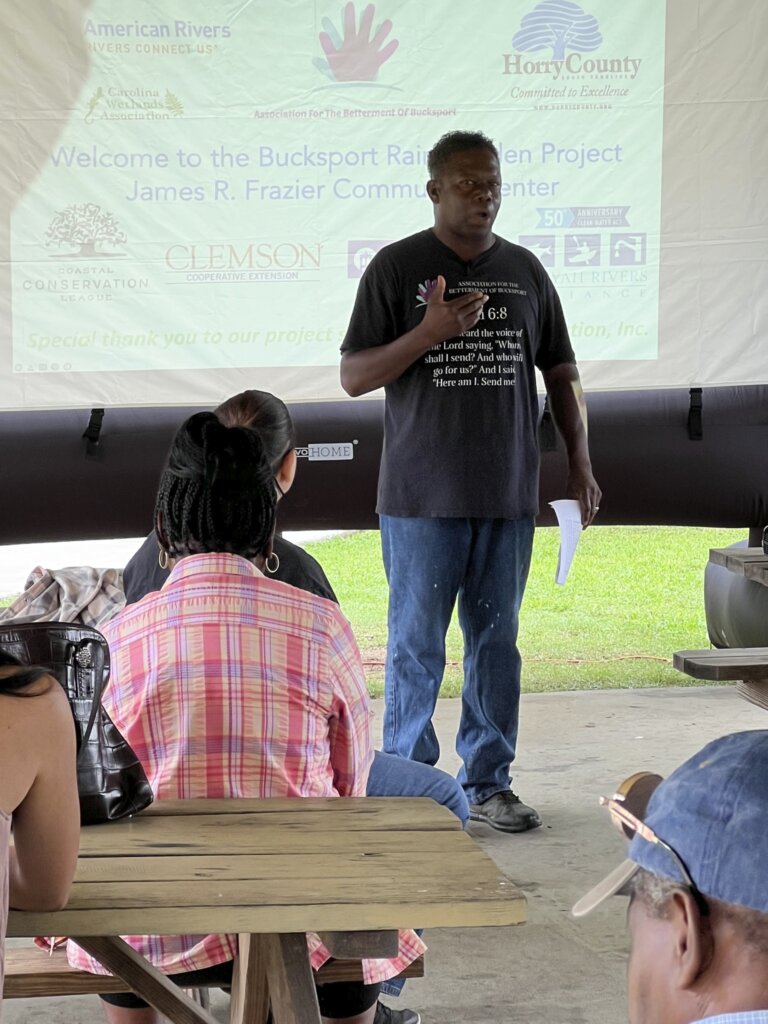
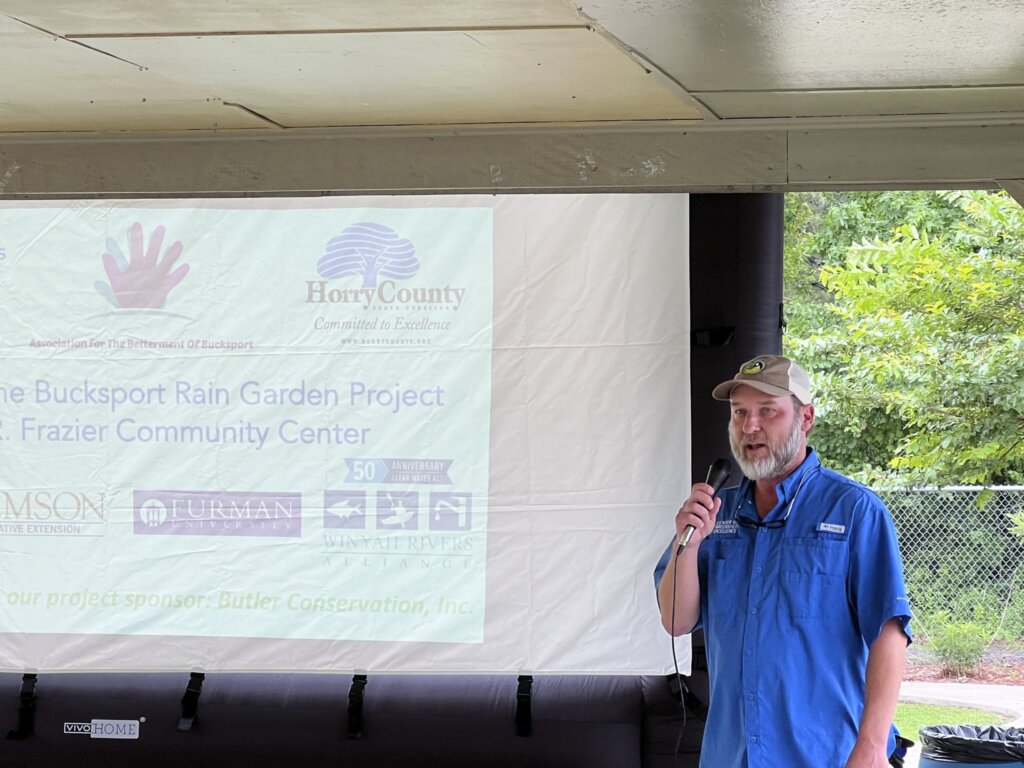
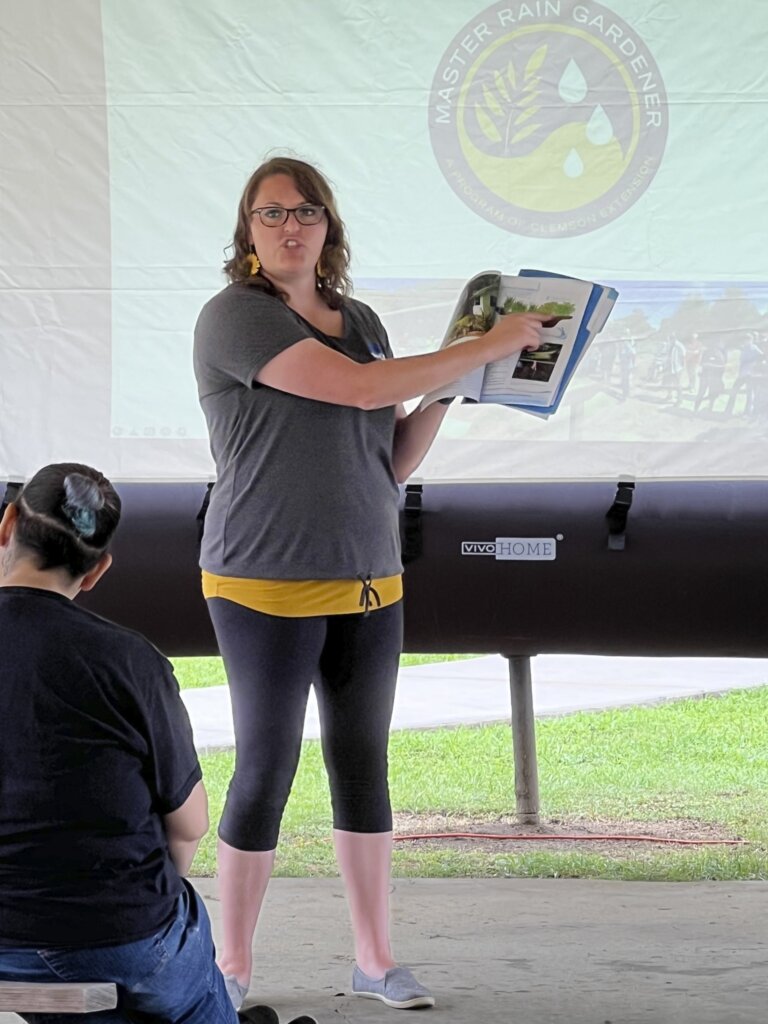
On the day of the event, Bucksport resident Kevin Mishoe, along with partners, briefly shared stories about how the project was conceived, their participation in the project and plans to offer a Master Rain Gardener class for residents through Clemson University Extension. Dan Hitchcock, with Clemson University Extension, gave an outline of the rain garden installation process with Ashley Cowan from Horry County Parks and Recreation describing the benefits of rain gardens for flood mitigation.
Following the presentation, residents and partners worked together to install the plants in the rain gardens.
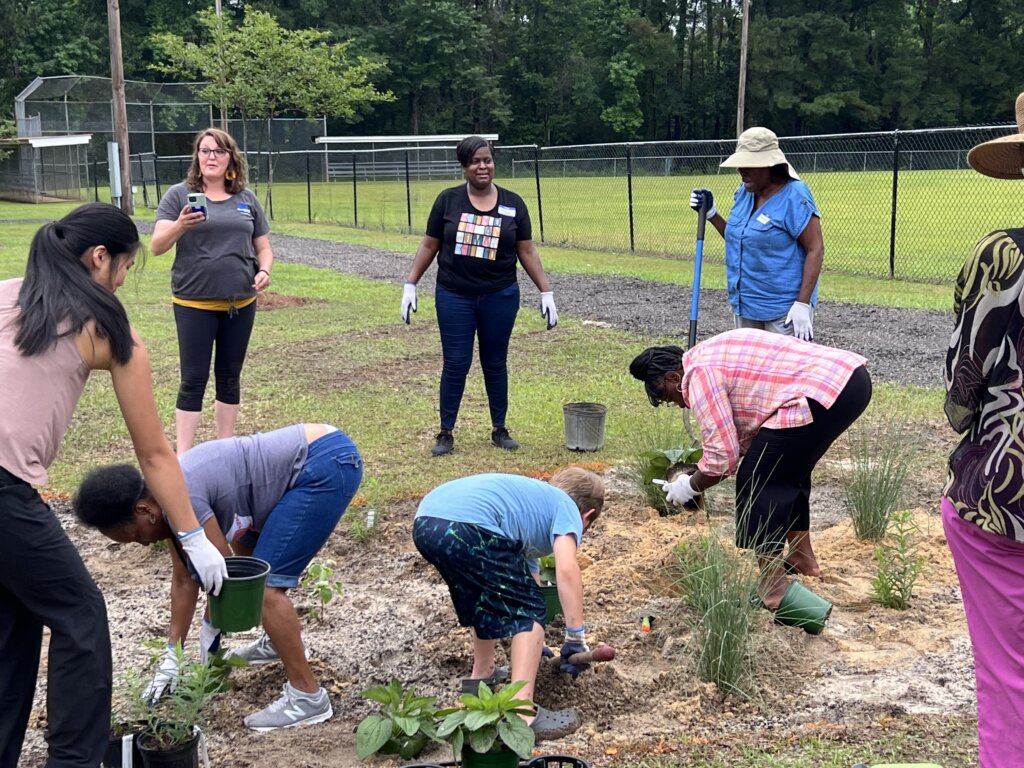
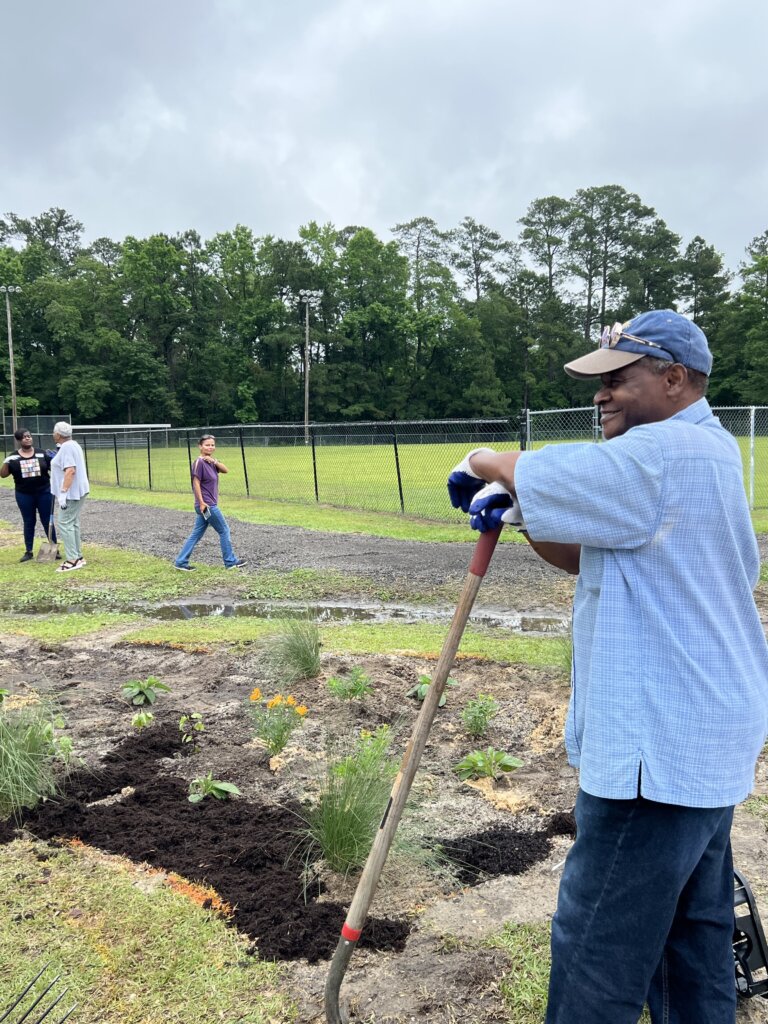
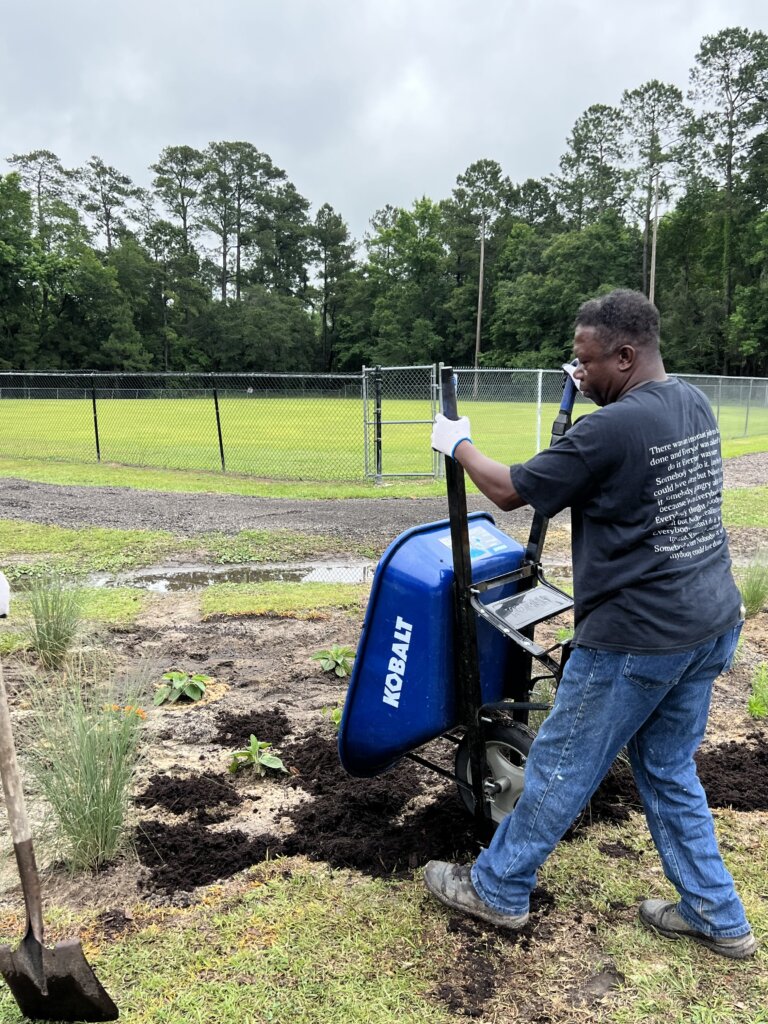
Installations were finished by late morning just before the heat of the summer day made the work too exhausting.
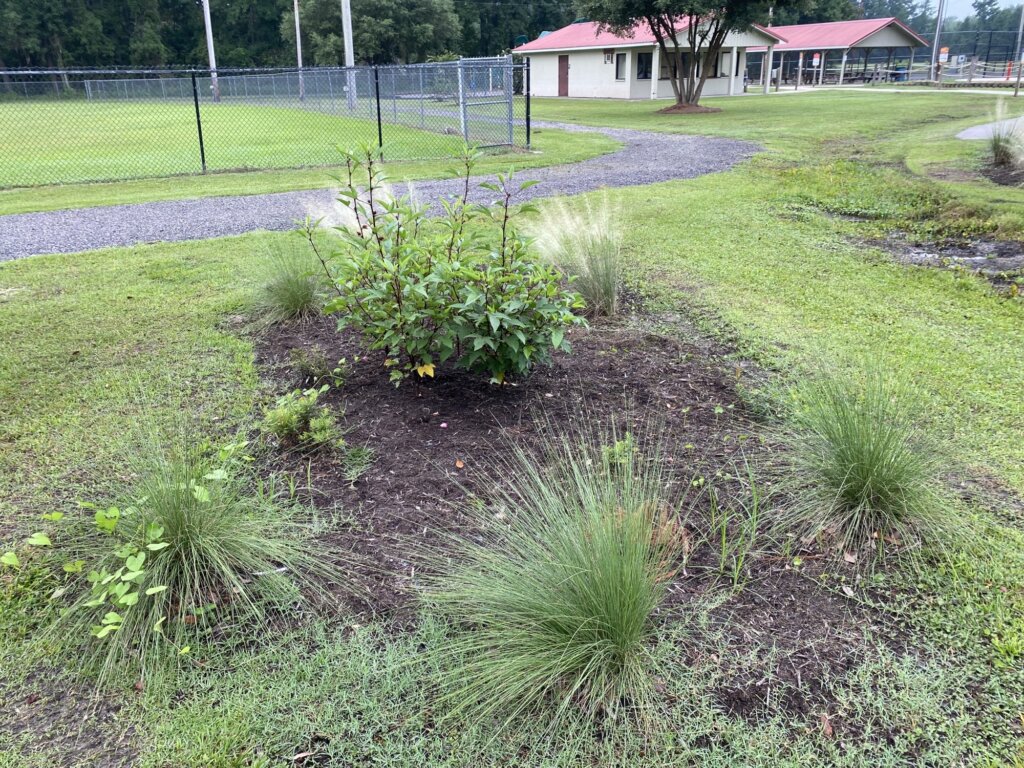
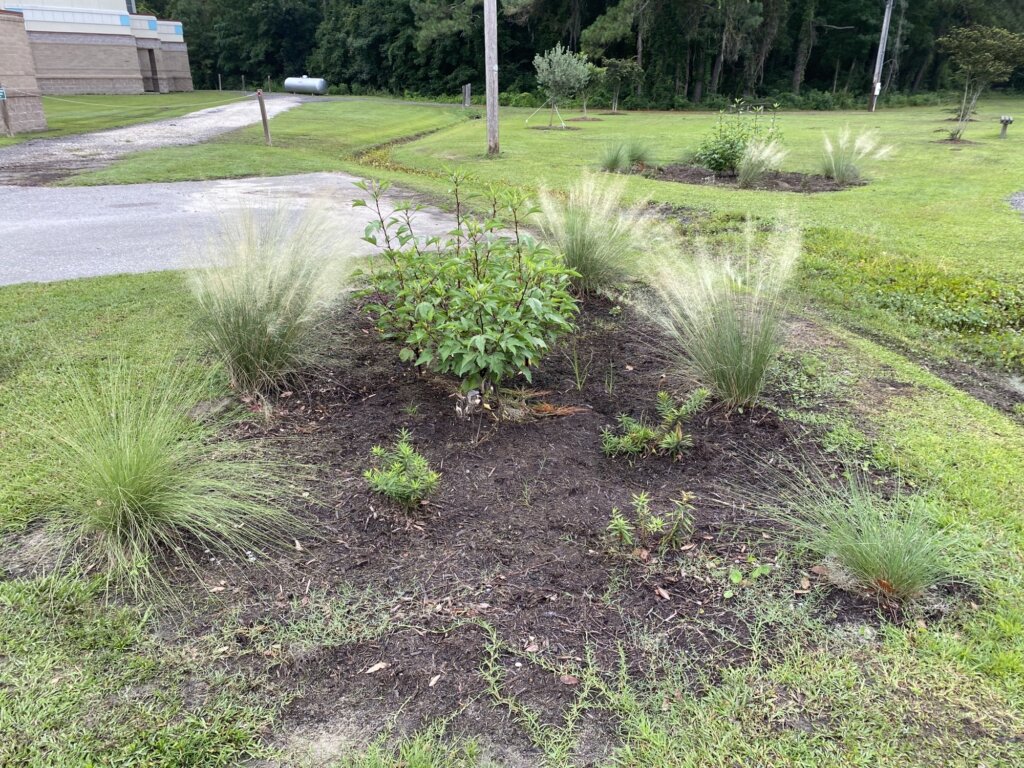
The installation was topped off by a catered lunch that included an array of southern foods, like fried chicken, pulled pork, stewed corn, baked beans, slaw, and fresh fruits. Horry County Council Member, Orton Bellamy, attended the lunch and noted the success of the rain garden installation, engaging with community members and partners throughout the meal. To determine interest in attending a Master Rain Gardener class, American Rivers provided a sign-up sheet for community members. As more residents arrived the list began to fill up. Residents who signed up for the class were given a raffle ticket. The winners were awarded a waterproof map of the Waccamaw River Blue Trail. Within the map, pages 25 and 26 offer images of the Waccamaw River which passes through the Bucksport community.
The community rain garden event marked the first step in empowering residents to manage the water that flows to their properties. While the rain gardens will not reduce the impacts of severe flooding, they will absorb runoff from light and moderate rainfall events that result in nuisance flooding and standing water. The Partnership is currently planning a large and ambitious restoration project for the community that will mitigate severe flooding, enhance the area’s natural character, and promote economic growth and cultural preservation.
The next step of Partnership’s rain garden initiative will ensure that residents can install rain gardens on their properties. The Association for the Betterment of Bucksport and American Rivers have collaborated with Clemson University Extension and Horry-Georgetown Technical College to bring the Master Rain Gardener Program to Bucksport so that residents have the opportunity to learn how to install and maintain rain gardens on their own properties. Additionally, since the program is offered as an online course, American Rivers will be bringing a Certified Master Rain Garden installer to provide further hands-on demonstrations during installs for some of the senior residents in the Spring of 2023.
As Hurricane Ian recently impacted the Coastal region of northern South Carolina excessive rain allowed for the rain gardens to be tested. Fortunately, flooding was not as much of an issue as it has been with past flood events. The image below offers a glimpse at the effectiveness of how using rain gardens help to mitigate flooding.
